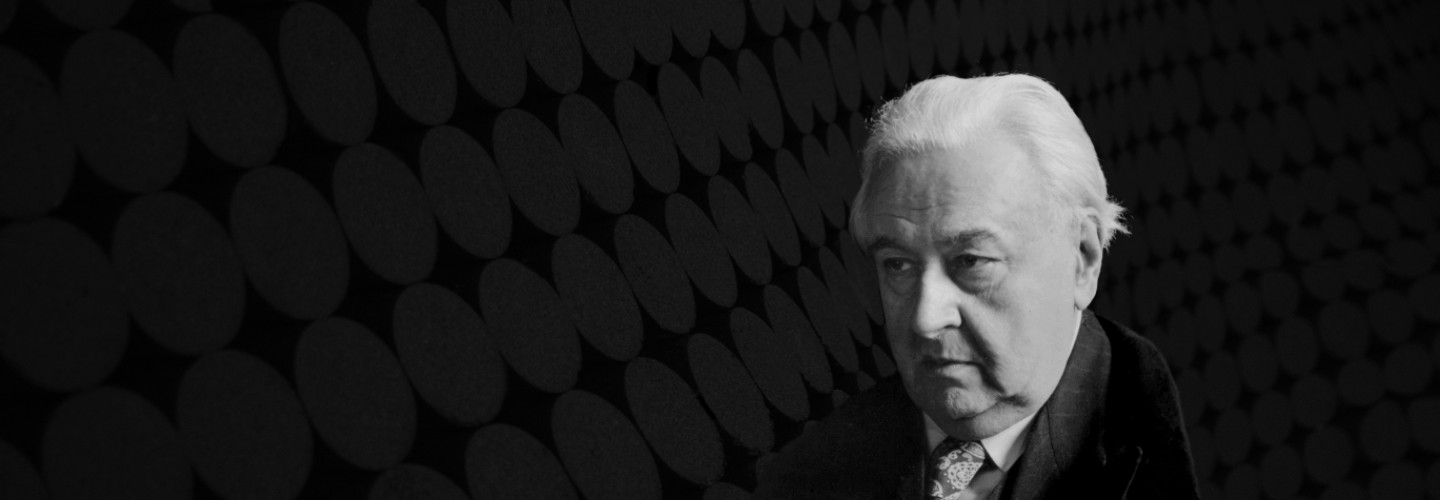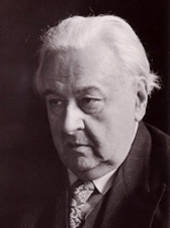
Works by Joseph Marx
Biography
The Austrian composer Joseph Marx, born on 11 May 1882 in Graz, was a highly gifted self–taught musician and early in life he stood up to his parents who forbade him to play the piano. In his mid–20ies –in the meantime he had earned a PhD in philosophy and published prize–winning dissertations on the fundamentals of tonality– his songs established his upcoming fame in all over Austria and his works became soon internationally known. In 1914 he moved to Vienna where he was offered a post as professor of theory at the music academy and later became rector of the first Hochschule für Musik which was established on his own initiative.
As first Western artist he was invited by Atatürk and travelled several times to Turkey in 1932–33 where he acted as advisor on the organization of the Turkish conservatory and the reforming of the Turkish concert system according to the European model. Many of his approx. 1,300 students from all over the world, who he taught in Vienna and Graz, later achieved fame as composers or conductors. As critic and prominent music expert he had a strong impact on the cultural life in Austria and Europe. When the Nazi regime came to power, Marx had to resign his posts, but during World War 2 he primarily appeared as a speaker on cultural events and clandestinely supported help–seeking Jewish families.
From 1945 to his death on 3 September 1964 Joseph Marx, who enjoyed great popularity and much respect especially in the 1950s, was at the forefront of tonal serious music in Austria and played an important role in European music and culture. In the years after his death most of his popular works fell prey to the cultural and musical re–orientation taking place in Austria and so were stigmatized as ‘reactionary music’. His name soon fell into oblivion and only his songs were remembered.
With the exception of the opera, Marx composed works for all genres of classical music, e.g. symphonies and symphonic poems, choral works, piano concertos, songs and orchestral songs, chamber music as well as organ and piano music. Already before his 20th birthday Marx, who was a strong individualist in all fields of his life, had already found his own musical language characterized by modern harmonies and a very pronounced polyphony. A major feature of the composer is that his music is much more difficult to play than could be assumed from the wonderful melodies.
Thanks to Berkant Haydin’s commitment who founded the Joseph–Marx–Gesellschaft in April 2006 there has now been a revival of the music by the famous composer Joseph Marx. The following works by Joseph Marx are published by Universal Edition:
Orchestral works:
– Eine Herbstsymphonie (Autumn Symphony, 1921)
– Eine symphonische Nachtmusik (Symphonic Nocturne, 1922)
– Idylle – Concertino über die pastorale Quart (1925)
– Eine Frühlingsmusik (Spring Music, 1925)
– Eine festliche Fanfarenmusik (Festive Fanfare Music, 1928)
– Nordland–Rhapsodie (Nordic Rhapsody, 1929)
– Alt–Wiener Serenaden (Old Vienna Serenades, 1941)
– Feste im Herbst (Autumnal Revelries, 1946)
Solo concertos:
– Romantisches Klavierkonzert in E major (1919–20)
– Castelli Romani for piano and orchestra in E flat major (1929–30)
Choral works:
– Ein Neujahrshymnus (A New Year’s Hymn) for mixed (or male) choir and orchestra (1914)
– Berghymne (Mountain Hymn) for mixed (or male) choir and orchestra (ca. 1910)
– Herbstchor an Pan (Autumn Chorus to Pan) for mixed choir, boys’ choir, organ and orchestra (1911)
– Morgengesang (Morning Chant) for male choir and orchestra (1910)
– Abendweise (Evening Melody) for male choir, brass orchestra, timpani and organ (1912)
– Gesang des Lebens (Song of Life) for male choir and organ (1914)
(Note: Some of these choral works are also available in various versions for smaller ensembles.)
Lieder and orchestral songs:
– 150 Lieder
– approx. 20 orchestral songs
– Verklärtes Jahr (Transfigured Year) for medium voice and orchestra (1930–32)
Chamber music et al.:
– Three piano quartets
– »Trio–Phantasie« for piano trio
– Two violin sonatas
– Works for cello and piano
– Six pieces for piano (1916)
– Ten more piano pieces (to be published in 2007)
– Nine organ pieces (to be published soon in 2007)
– Two songs for voice and organ
– A series of songs with chamber accompaniment

